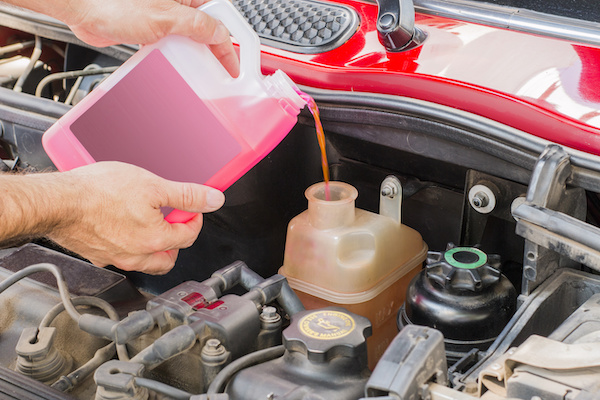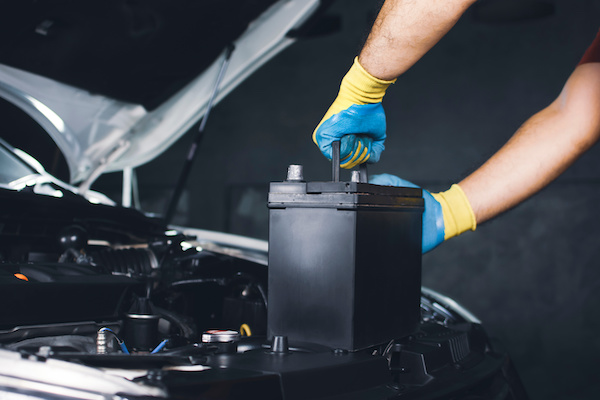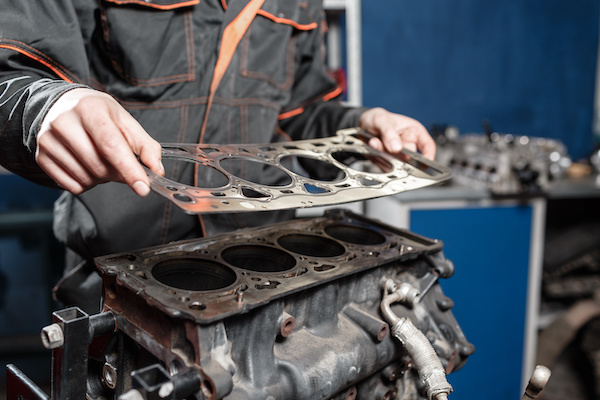Posted on 10/31/2022

What Is A Cooling System? The cooling system is a network of pipes, hoses, and pumps that work together to maintain the temperature of your engine. To put it simply: The coolant is pumped through the engine block and radiator core so that it can absorb heat from the engine, which then gets carried away by the fan belt and pushed through vents on the hood. Your vehicle's cooling system is responsible for getting rid of the heat created by the engine, which can be a major problem in the summer or if you are driving in extreme temperatures. What Is A Cooling System Flush? This is the process of flushing out all the old coolant, rust and other gunk that can build up over time in your vehicle's cooling system. It is done by replacing the old fluid with fresh fluid that will ensure your engine stays at an appropriate temperature for longer periods of time without failing or overheating again. A cooling system flush is a service that can help your car run cooler and more efficientl ... read more
Posted on 9/28/2022

Cruising around with your sunroof or moonroof open is one of the best ways to enjoy a nice, sunny day in Houston. With the breeze on your head, what can go wrong? Unfortunately, older sunroofs and moonroofs can face issues just like any other part of your car. It is vulnerable to physical damage and mechanical damage. Don’t let the thrill of it go by neglecting sunroof or moonroof repairs. Read on to learn more about common sunroof repairs and how we can fix them at Space Center Automotive of Clear Lake. Problem 1: Leaking Sunroofs One of the most common problems that we see is sunroof leakages. They can be damaging to the interior of your car, so these should be corrected as soon as possible. Leaks can be caused by clogged drains or wear and tear on the rubber seals around the sunroof. Problem 2: Electrical Problems Inoperable sunroofs are a nightmare, especially if they are stuck open. If pressing the button to open/close your sunroof doesn’t trigger a response ... read more
Posted on 8/30/2022

As we start to wrap up our summer fun, let us not forget about still getting our kids ready for the school semester. Our summer road trips and adventures have been memorable, and the interior and exterior of our vehicles have experienced some wear and tear. Before you’re engrossed in the busy school season, we recommend having your car cleaned and detailed. A detailing service at Space Center Automotive of Clear Lake will ensure your vehicle is meticulously cleaned inside and out. Our auto detailing services guarantee that your car will be clean, shiny and free from all debris. And all traces of snacks, crumbs, or stains from your road trips will be gone. A professional detailing service generally entails: Wash/dry exterior Wheel cleaning Carpet shampooing Window cleaning Deodorizing Floor mat cleaning Interior vacuuming Wax application … and more. At our auto service shop, we use high-quality products and professional cleaning tools to ens ... read more
Posted on 7/27/2022

Every car owner has experienced getting into their car and turning the ignition, but the car won't start. When a car does not start, it is a battery or alternator issue. The alternator and the battery are equally important to the car's charging system as none can function without the other. It helps to know the difference between the two parts: Definition A battery is a device that produces electricity by transforming chemical energy into electrical energy. An alternator refers to a machine that converts mechanical energy into electrical energy. Though both produce electrical energy, there are some differences between them. A battery produces DC power while an alternator produces AC power which means the battery will be used for DC loads and the alternator for AC loads. A battery uses chemical reactions, while an alternator does not. Moreover, an alternator has moving parts, whereas a battery does not. A significant difference between an alternator and a battery is that the l ... read more
Posted on 6/27/2022

What is a Head Gasket Leak? Few things are as stressful as car problems. A head gasket is a key component of your car. The engine has two sections, the cylinder block (pistons, cylinders, spark plugs, camshaft, and valves between these two parts lies the head gasket. What does a Head Gasket do? Your car needs a head gasket to catch and contain stress emitted when the cylinder's fire. The head gasket stops oil and refrigerant from leaking into delicate parts of the automobile engine. Consequently, the head gasket has to tolerate all the cylinder's pressure caused by expansion, contraction, rubbing, and lots of other rough contact. What Causes a Head Gasket Leak? A vehicle's engine produces high heat levels. An engine overheats and the tension placed on the head gasket can be more than it can handle causing a blown head gasket. The intense heat forces the engine block and cylinder head to rapidly swell and the head gasket is broken. Another potential cause of a head gas ... read more